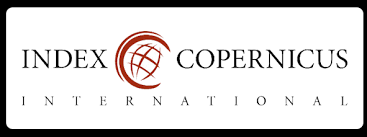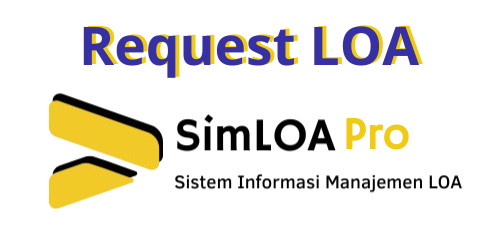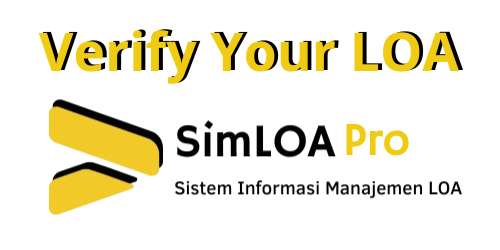Pengaruh Program Sertifikasi Halal Gratis (Sehati) terhadap Minat UMKM untuk Mengajukan Sertifikasi Halal di Kemenag Kota Prabumulih
DOI:
https://doi.org/10.61994/equivalent.v3i2.1091Keywords:
Halal certification, Interest and MSMEsAbstract
Abstract : The purpose of this study is to find out how the Free Halal Certification Program (Sehati) affects the interest of small and medium enterprises (SMEs) in applying for halal certification at the Ministry of Religious Affairs in Prabumulih City. The Halal Certification Program is the independent variable in this study, while SMEs' interest is the dependent variable. This research uses a quantitative research design, employing a questionnaire as the data collection tool, utilizing Likert scale techniques with a total of 80 respondents who fall within the characteristics of the respondents. Based on the data processing that has been done, this study shows that the results indicate that free halal certification affects SMEs' interest at the Ministry of Religious Affairs in Prabumulih City. The free halal certification program at the Ministry of Religious Affairs in Prabumulih has a significant effect on SME actors to register their businesses. Based on the hypothesis testing results regarding the effect of the halal certification variable on From the interest in MSMEs, it is obtained that the halal certification variable has an effect on MSME interest of 0.000, which is less than 0.05, where in the t-test result, it is known that the calculated t value is 2.673. Based on the simple regression test results, it is known that the certification variable has a significant effect on MSME interest to register for halal certification at the Ministry of Religious Affairs in Prabumulih City. The result of the coefficient of determination (R2) test obtained a value of 0.719, in other words, this indicates that the percentage of variation that can be explained by the variation of the independent variable is 71.9%, while the remaining 28.1% is explained by other variables not explained in this study.
Abstrak : Tujuan penelitian ini adalah untuk mengetahui bagaimana Pengaruh Program Sertifikasi Halal Gratis (Sehati) Terhadap Minat Umkm Untuk Mengajukan Sertifikasi Halal Di Kemenag Kota Prabumulih. Dengan variabel Program Sertifikasi Halal yang merupakan variabel independen dalam penelitian ini dan Minat UMKM sebagai variabel dependen. Penelitian ini menggunakan desain penelitian kuantitatif dengan alat pengambilan data yang digunakan ialah kuesioner, menggunakan teknik skala likert dengan total 80 responden yang termasuk kedalam karakteristik responden. Berdasarkan hasil olah data yang telah dilakukan, penlitian ini menunjukkan hasil bahwa Hasil penelitian menunjukkan bahwa sertifikasi halal gratis berpengaruh terhadap Minat UMKM Di Kemenag Kota Prabumulih. Program sertifikasi halal gratis yang ada di Kemenag Kota Prabumuih berpengaruh secara signifikan bagi pelaku UMKM untuk mendaftarkan usahanya. Berdasarkan hasil pengujian hipotesis tentang pengaruh variabel sertifikasi halal terhadap Minat UMKM diperoleh keterangan bahwa variabel sertifikasi halal berpengaruh terhadap Minat UMKM sebesar 0,000 lebih kecil dari 0,05 di mana pada hasil uji t diketahui bahwa nilai t hitung sebesar 2,673.Berdasarkan hasil uji regresi sederhana, diketahui bahwa variabel sertfikasi berpengaruh signifikan terhadap Minat UMKM untuk mendaftarkan sertfikiasi halal di Kemenag Kota Prabumulih. Sedangkan untuk hasil uji koefisien determinan (R2) diperoleh nilai sebesar 0,719 dengan kata lain hal ini menunjukkan bahwa besar persentase variasi yang bisa dijelaskan oleh variasi dari variabel bebas yaitu sebesar 71,9% sedangakan sisanya 28,1% dijelaskan oleh variabel lain yang tidak dijelaskan dalam penelitian ini.
References
Abdul Rachman Shaleh dan Muhbib Abdul Wahab. (2004). Pisikologi Suatu Pengantar Dalam Prespektif Islam. Jakarta: Prenada Media.
Ahmad Farhan. (2018). Pelaksanaan Sertifikasi Halal LPPOM MUI Terhadap Produk Usaha MIkro, Keecil, Menengah (UMKM). Manhaj: Jurnal Penelitian dan Pengabdian Masyarakat, Vol. 3 No. 1.
Alo Liliweri. (2019). Metodologi Penelitian Kuantitaif. Jakarta: Kencana.
Andi Saputra. Dkk. (2021). Analisis Produk Halal Dalam Upaya Perlindungan Konsumen Muslim (Studi Kasus Pedagang Daging Segar Di Pasar Kamboja Kelurahan Dua Puluh Ilir Tiga Kecamatan Ilir Timur 1 Kota Palembang). Jimesha, Vol. 1 No. 2.
Anggit Listyoningrum. (2012). Analisis Minat Beli Konsumen Muslim Terhadap Produk yang Tidak Diperpanjang Sertifikat Halalnya. Jurnal Ekonomi dan Keuangan Islam, Vol. 02 No. 01.
Apip Alansori dan Erna Listiyaningsih. (2020). Kontribusi UMKM Terhadap Kesejahteraan Masyarakat. Yogyakarta: Andi.
Azwar, S. (2012). Penyusunan Skala Psikologi, Edisi Kedua, Yogyakarta : Pustaka Belajar.
Eka Rahayu Ningsih dan M. Lathoif Ghozali. 2021. Sertifikasi Produk Halal dalam Perspektif Maslahah Mursalah. Jurnal Ekonomi Islam, Volume 7 No.1.
Fatimah Nur. Jaminan Produk Halal Di Indonesia Terhadap Konsumen Muslim.
jurnal UIN Sunan Gunung Djati Bandung.
Fernando Welhinton. (2018). Pemberdayaan Pelaku Usaha Kuliner Berbahan Baku Nanas Melalui Usaha Mikro Kecil Dan Menengah Oleh Dinas Koperasi Kota Prabumulih Provinsi Sumatera Selatan. Manhaj: Jurnal Penelitian dan Pengabdian Masyarakat, Vol. 3 No. 1.
A.C. Whiteringten. (1982). Pisikologi Pendidikan. Terjemahan. M. Buchari. Jakarta: Aksara Baru.
Downloads
Published
Issue
Section
License
Copyright (c) 2025 Zayudi, M. Robby Kaharuddin , Candra

This work is licensed under a Creative Commons Attribution-NonCommercial 4.0 International License.

















